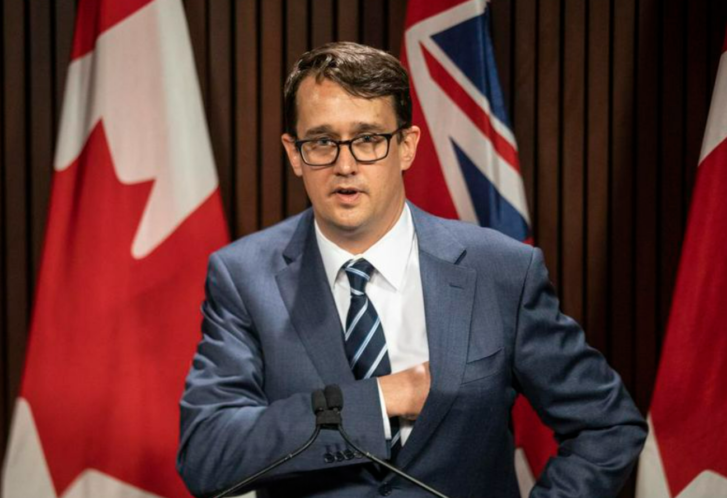Program would open up health, vision and dental care for millions of workers.
Ontario wants to expand workers’ access to health care benefits through a new system that will make affordable medication and other supports available, even when employers do not provide insurance, Labour Minister Monte McNaughton says.
In a move expected to be announced Thursday, the provincial government will establish an advisory panel on how to create a new “portable” benefits program aimed at millions of workers who may otherwise be shut out from accessible health, vision and dental care.

It’s the start of what McNaughton calls a “monumental” task that could nevertheless see Ontario “lead the way” in expanding benefits access.
“I’m really excited about this. Less than 25 per cent of those who work part-time or in precarious jobs have benefits,” he said in an interview with the Star.
“This is about building back a better province and a fairer province for all workers and their families.”

The move follows a recent report from the Ontario Workforce Recovery Advisory Committee, which recommended the creation of portable benefits tied to workers, not their employers.
“This is aimed at helping the most vulnerable, those in precarious jobs, the young, newcomers, women — all of those that have been disadvantaged for many, many years as the economy has changed,” said McNaughton.
A 2015 study by the Toronto-based Wellesley Institute found around a third of Ontario workers do not have health and dental benefits. That figure was significantly worse for low-wage earners: some 70 per cent of workers earning between $10,000 and $20,000 do not have workplace benefits.
Part-time and temporary workers are also often excluded from employer benefit plans. Gig workers, who are often classified as independent contractors by app companies, typically have no protection either.
The OWRAC report, released in December, doesn’t specify what the province’s portable benefits program should look like, and says the scheme could be administered by “an independent body, the government, the private sector or some combination.”
McNaughton said the panel is expected to be struck in the coming weeks, and will be asked to deliver an interim report by July, a month after Ontarians head to the polls for a general election.
Advocates have long called on multiple levels of government to address significant barriers to benefits access — and to strengthen social safety nets — through the creation of universal programs like Pharmacare.
Deena Ladd of the Toronto-based Workers’ Action Centre said the health-care system must be expanded to “cover the needs of workers, no matter where they are.”
A national plan would ensure comprehensive access to crucial supports like drug and dental coverage and would be “a lot cheaper as well,” said Ladd.
In an interview with the Star, McNaughton said he has raised the issue with his federal counterparts but said Ontario was “not going to wait for the rest of the country to catch up to us.”
Portable benefits already exist in varying forms across Canada. For example, British Columbia’s Pharmacare plan offers prescription drug coverage to families based on their income. Some industries, like the film and arts sector in Quebec, as well as some unions also provide benefit plans that aren’t tied to a particular workplace or employer.
McNaughton said the panel will bring the “best minds together to meet with labour, workers and employers” to design a portable benefits strategy that he says will ultimately be a North American first.
That task, he added, is important to address unfilled jobs and to “set Ontario apart as the best place to live, work and raise a family.”
Article From: The Star
Author: Sara Mojtehedzadeh

